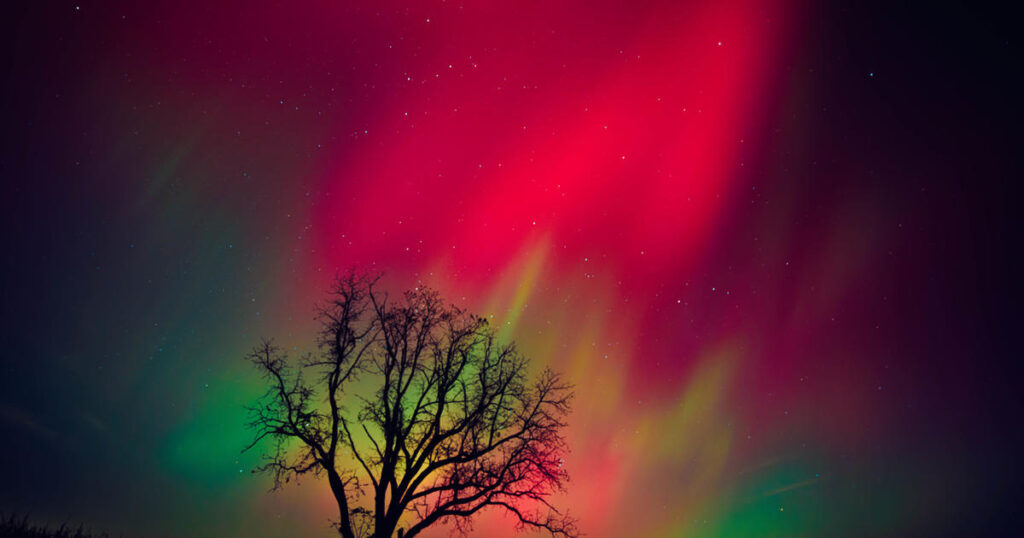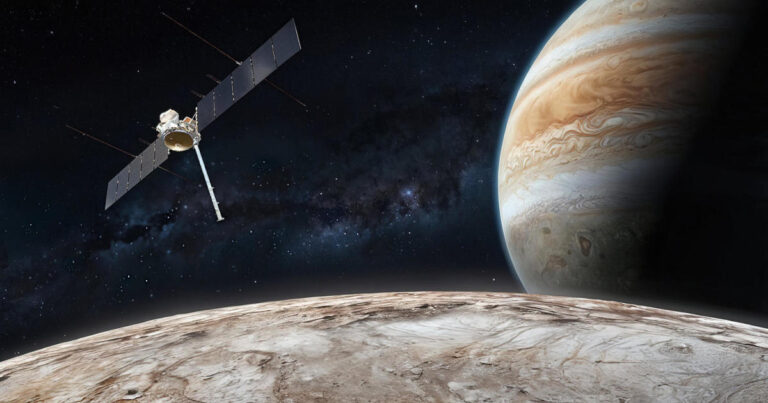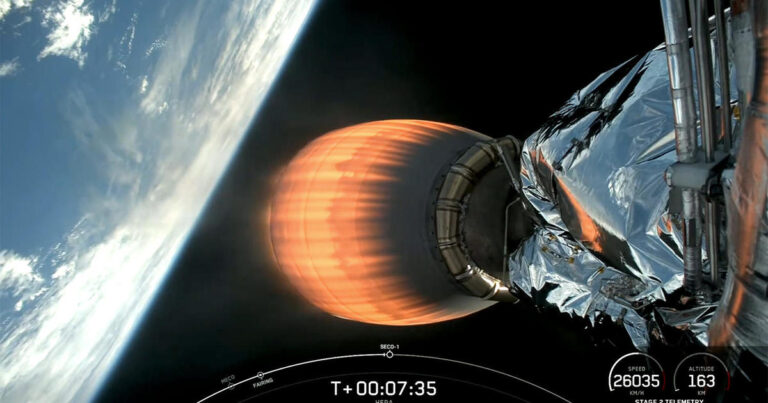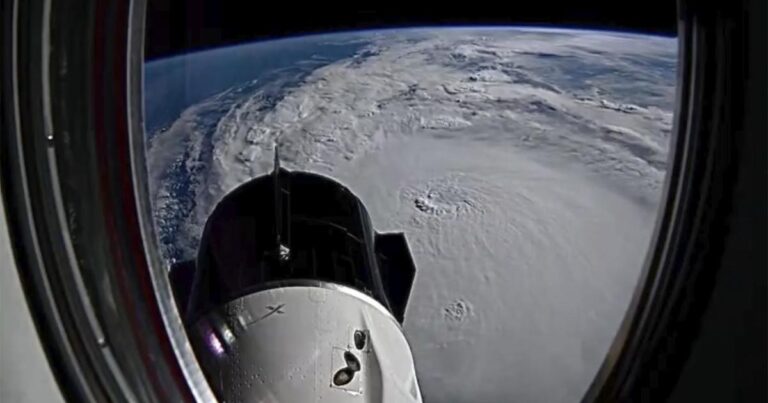
The northern lights made an incredible display over much of the United States on Thursday — and might make a return appearance Friday night.
The aurora borealis was visible as far south as Florida on Thursday. Photos show the sky lit up in red and purple, even in some brightly-lit areas like New York City and Chicago.
The strong geomagnetic storm that created such a show has subsided, according the National Oceanic and Atmospheric Administration, but some parts of the U.S. may again see the northern lights tonight. Here’s what to know.
Roy Rochlin / Getty Images
Where will the northern lights be visible tonight?
The northern lights will be visible for parts of the northern U.S., according to the NOAA Space Weather Prediction Center’s aurora forecast. The aurora will be visible over much of Canada and Alaska, but the northern lights can also be seen from as far as 620 miles away if the conditions are right, NOAA says.
Parts of Idaho, South Dakota, Minnesota and Wisconsin may be able to see the lights Friday night. On the East Coast, the aurora might be visible in northern New York and parts of Vermont and New Hampshire. Areas of Maine may also see the northern lights.
The lights will appear to the north when it’s dark outside. If you can’t see them with the naked eye, they may be visible through a phone camera or other device.
NOAA Space Weather Prediction Center
What time will the northern lights be most visible?
The northern lights are most visible just after sunset or just before sunrise, NOAA said. The aurora is not visible during the day. Dark, cloudless skies with little artificial light provide the best viewing experience.
Ross Harried/NurPhoto via Getty Images
Why have the northern lights been so visible lately?
Over the last several months the sun has been incredibly active, unleashing a series of coronal mass ejections from its surface, CBS Boston reported. That’s resulted in multiple visible aurora shows.
The geomagnetic storm responsible for Thursday’s stunning skies is now subsiding, CBS Boston reported. That means there will be less chance of seeing the aurora on Friday, but there may be more opportunities in the future.
Shawn Dahl, a forecast coordinator with the Space Weather Prediction Center, told CBS Boston that the northern lights have been so intense lately because of where the sun is in its 11-year solar cycle. Dahl said that “we are in the midst of solar maximum.”
Heather Kepple
“What that means is the sun is now this twisted-up mass of strong magnetic fields, and some of these are so localized and intense they reveal themselves as these sunspot groups,” Dahl said. “That’s the source of a bunch of the space weather storms that we’re looking for and predict.”
What causes the northern lights?
The northern lights are caused by interactions between the sun’s solar winds and the Earth’s protective magnetic field, according to NOAA. Those two phenomenons result in geomagnetic storms and increased geomagnetic activity.
The higher the geomagnetic activity is, the better your odds are of seeing the aurora. Increased geomagnetic activity means the aurora will become brighter, more active and visible farther from the poles of the planet, NOAA said.
Even moderate solar wind creates the aurora, NOAA said, so there is usually a weak aurora visible from somewhere on Earth. The best places to see these weaker auroras is close to the planet’s poles, like in Greenland or southern Argentina. If you see the aurora near the North Pole, it’s nicknamed the northern lights. The same phenomenon near the South Pole is called the southern lights.
2024-10-11 15:03:00










